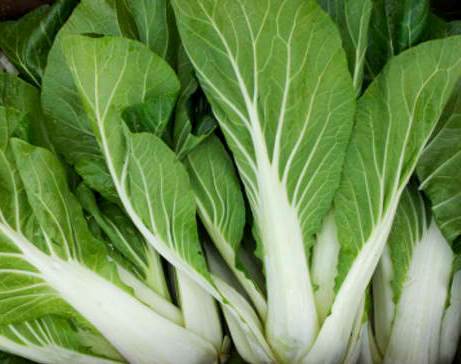First of all, it depends on an individual’s interpretation of what ‘organic food’ really means. To the average consumer it translates to being raised gently and naturally without any scary insecticides, hormones, antibiotics or pesticides. Organic produce does not have to be ‘natural,’ it can be genetically modified or filled with additives. The knowledge of what actually allows food to qualify to be labeled ‘certified organic’ has many variations on a regulatory level. Being labeled ‘natural’ is also fraught with issues the general shopper is unaware of in some countries.
Secondly, organic labeling depends on where you live. In most countries around the world, only food plants grown in soil can be certified as organic. The United States however, does provide for certified organic hydroponic foods – on a federal level. It is the only country that has such a classification. To further confuse the consumer, there are state guidelines and regulations that contradict those developed by the US federal government.
The very definition of organic technically involves the soil, and hydroponics involves only soilless growing techniques. You should understand that the rules, regulations and guidelines for food production around the world were all created for traditional agriculture practices. Hydroponics is a completely different thing. Still, a large group of hydroponic gardeners have been hard at work developing organic hydroponic nutrients. This is a much more tedious process than devising traditional hydroponic nutrients and for years they were unreliable along with the grower having the constant possibility of malfunctioning equipment due to clogging. More recently it is reported that there are now dependable organic hydro nutrients in terms of supplying proper, well balanced nutrition that will not mess with your equipment. However, without a lot of study on which products are best, don’t go rushing off to purchase ‘organic nutrients’ as many of them state they work for both soil gardening and hydro systems. Red flag! These are as different as night and day.
 The definition of ‘natural’ means no alterations or additives. Once again, the United States has an opposite approach to handling this from the rest of the world. There are no regulations and there is no need to prove whether the contents of a package is natural or not in the USA. A lot of things labeled as ‘natural’ is anything but in all states, marketed on both a national or local level. In Canada, a natural food cannot have added vitamins or minerals, artificial flavoring or other food additives. Canadian regulations further state that the only acceptable processing of a food that can be labeled ‘natural’ is the removal of water. In the UK, the regulation is less wordy but very implicit. Natural foods must be “ingredients produced by nature, not the work of man or interfered with by man.” No cloned plants’ produce, unusual production methods, GMOs or can be considered or sold as natural foods.
The definition of ‘natural’ means no alterations or additives. Once again, the United States has an opposite approach to handling this from the rest of the world. There are no regulations and there is no need to prove whether the contents of a package is natural or not in the USA. A lot of things labeled as ‘natural’ is anything but in all states, marketed on both a national or local level. In Canada, a natural food cannot have added vitamins or minerals, artificial flavoring or other food additives. Canadian regulations further state that the only acceptable processing of a food that can be labeled ‘natural’ is the removal of water. In the UK, the regulation is less wordy but very implicit. Natural foods must be “ingredients produced by nature, not the work of man or interfered with by man.” No cloned plants’ produce, unusual production methods, GMOs or can be considered or sold as natural foods.
The real concern every consumer should have is where this organic fruit or vegetable came from. All imported foods – organically grown or not – is irradiated at the time of entry into the USA. Just because a food is labeled as organic does not mean it was never treated with chemical pesticides or insecticides, it only means that the amount detected was within ‘safe’ levels.
Whether you want to grow safe food for your own consumption or to sell locally, hydroponics and an indoor garden allow you to grow safe food that is healthy to eat. You can grow without any spraying for pests and disease with the properly managed environment. Your food will be fresher and tastier than anything labeled as organic at your area grocery store. Why? It will be vine ripened and harvested within several hours to a day before it arrives on the dinner plate. This means more nutritional value too, as levels of these will also be greater in food picked at the right stage of ripeness over those picked green to ship long distance.